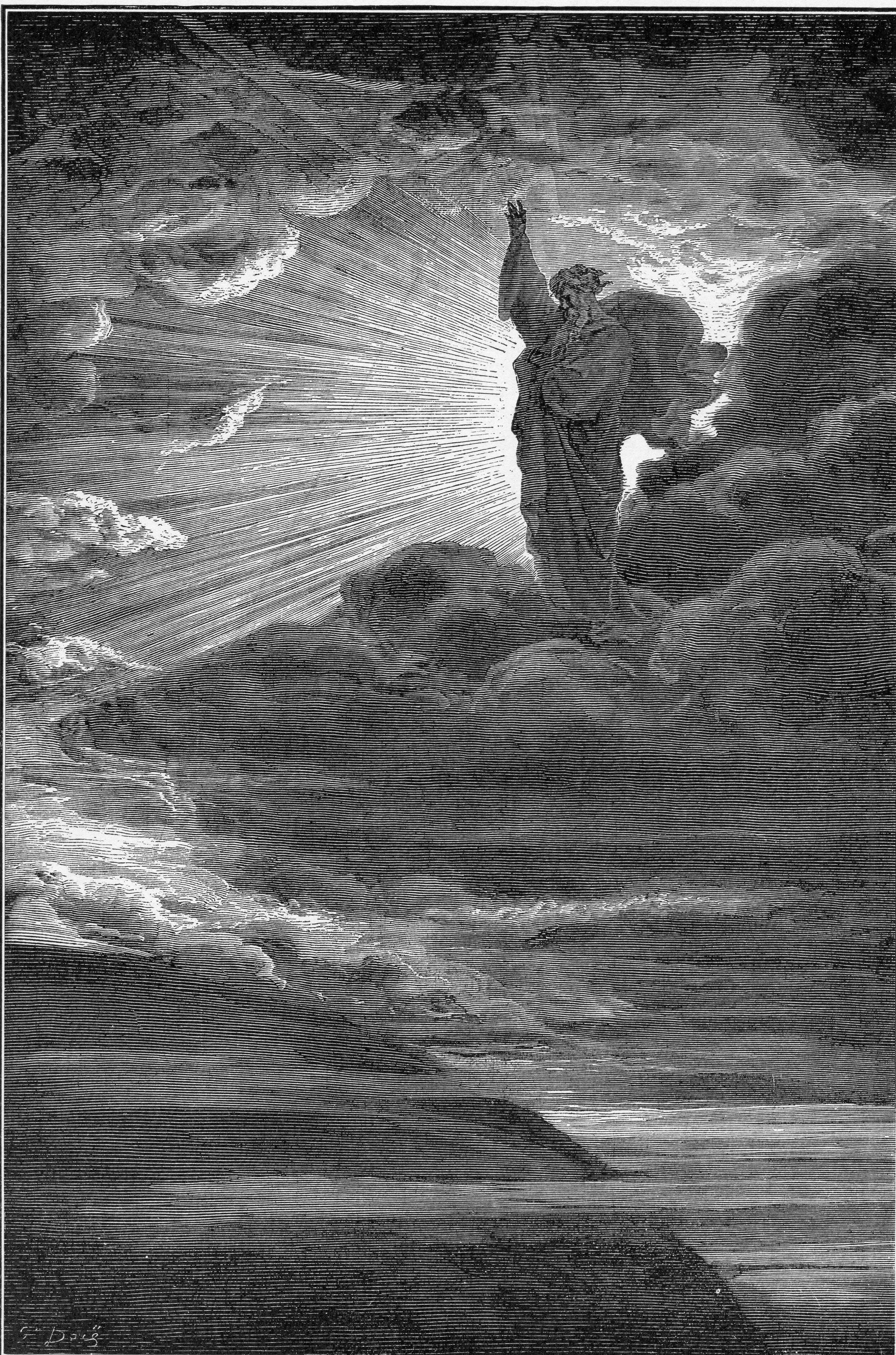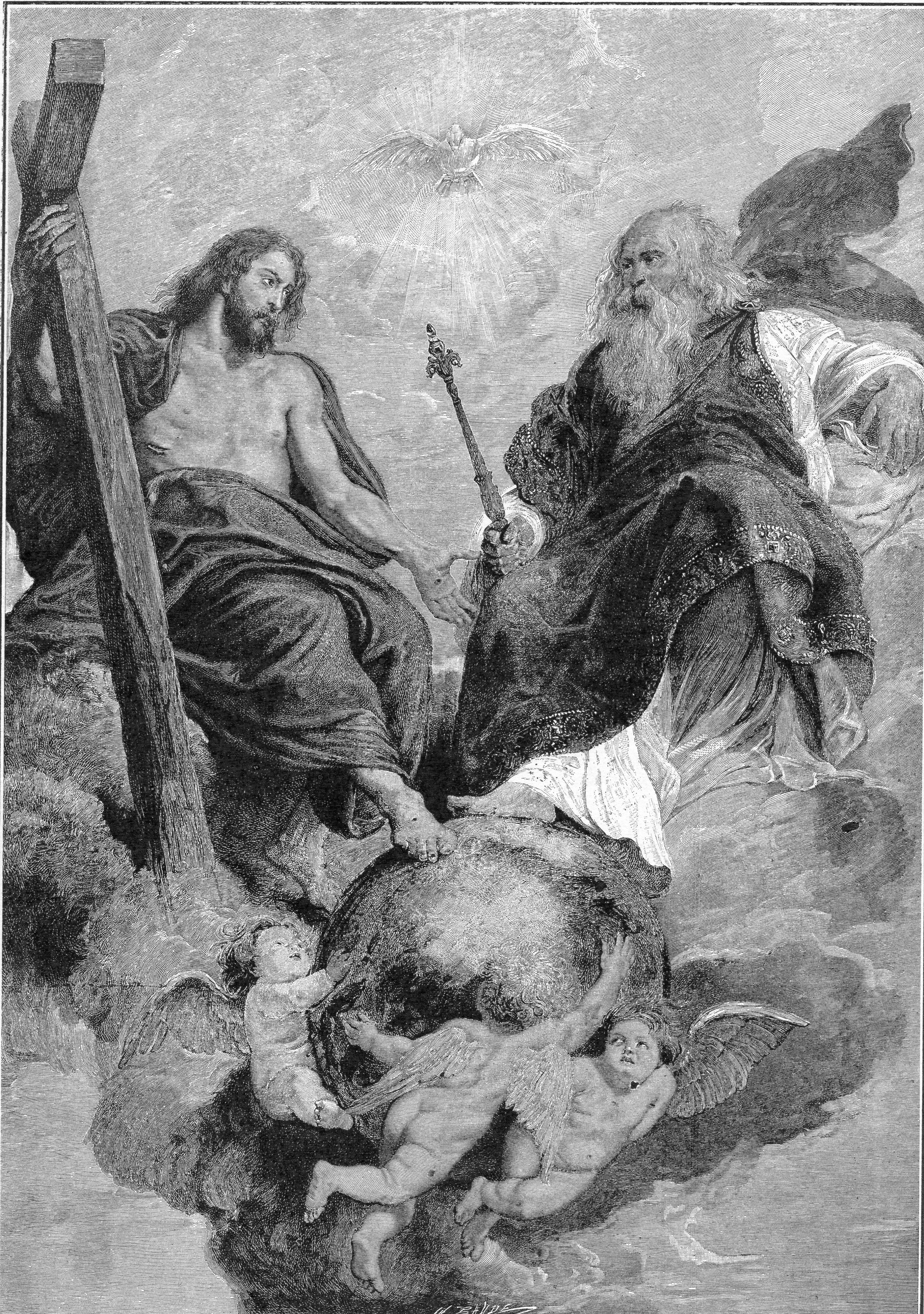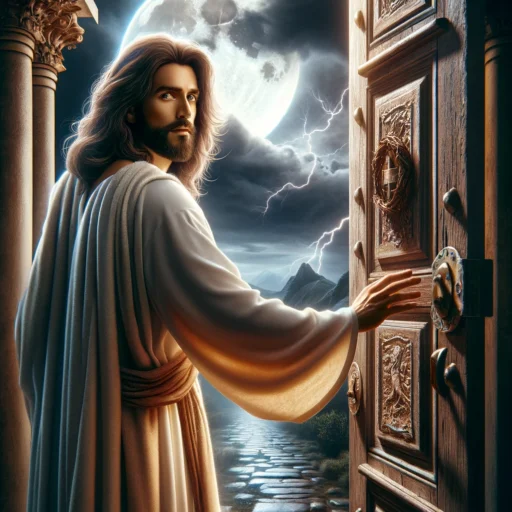
The Almighty creates the heavens and earth
Who is the Almighty?
His name is commonly known as “Jehovah” or “Yahweh.” He is the God of Abraham, Isaac, and Jacob
15 God also said to Moses, “Say this to the people of Israel: Yahweh, the God of your ancestors—the God of Abraham, the God of Isaac, and the God of Jacob—has sent me to you.
15 God also said to Moses, “Say this to the Israelites: Yahweh, the God of your fathers, the God of Abraham, the God of Isaac, and the God of Jacob, has sent me to you. This is My name forever; this is how I am to be remembered in every generation.
Interestingly, his name has been found on a small lead tablet, dated to approximately 1200 BCE.
Psalms 83:18; “That people may know that you, whose name is Jehovah, You alone are the most high over all the earth.”
This name, “Jehovah,” is not the original spelling or pronouncing of this name. But neither are the commonly known names, “Jesus,” “Jeremiah,” or “Jerusalem.” However, we use the common spelling and pronouncing of these and other names so that we can identify individuals and places.
The name “Yahweh” (a.k.a. Jehovah) is found in whole or part about 7,000 times in the scriptures! It is the most widely placed name in the scriptures. Many translations have taken the name out and replaced it with the title “LORD” in capital letters. Why? Did they think that the Almighty made a mistake when he originally had it placed there? It was God’s intention to have it there!! Some translations claim to follow the Jewish practice of the removing of the name. But it is obvious that anyone who replaces God’s name with a title is attempting to usurp what God had originally planned. Who wants the removal of God’s name? God or Satan? It is clear from the above scripture of Exodus 3:15 that Yahweh wants his name to be known!
Yahweh wants to have his name memorialized among the nations and to have the names of other God’s not mentioned – See Bible Names and Their Meanings
Psalms 148:1-5; “Praise Jah, YOU people! Praise Jehovah from the heavens, Praise him in the heights. (2) Praise him, all YOU his angels. Praise him, all YOU his army. (3) Praise him, YOU sun and moon. Praise him, all YOU stars of light. (4) Praise him, YOU heavens of the heavens, And YOU waters that are above the heavens. (5) Let them praise the name of Jehovah; For he himself commanded, and they were created.”
- How can people praise Jehovah if they are not told his name or if the name has been removed from some translations? Who would do this? One thing is for certain, Satan does not want to praise Jehovah (more on that later). So anyone who hinders praise to Jehovah – like removing his name – is serving Satan’s interests.
Proverbs 1:7 “The fear of Jehovah is the beginning of knowledge…” This “fear” is a respectful fear and it is important. Will someone obey or listen to someone that they do not respect?
2 Chronicles 16:9a; “As regards Jehovah, his eyes are roving about through all the earth to show his strength in behalf of those whose heart is complete toward him.” This does not say that Jehovah is looking for only the smartest, richest, or the poorest. Jehovah is simply looking for those whose heart is complete toward him. Could someone’s heart be complete toward Jehovah if they were involved with false worship? How about if they did not care to test their doctrines to see if they were approved of, according to God’s word?
Daniel chapter 4 is about the Babylonian king Nebuchadnezzar being humbled by the Most High. He becomes haughty and declares that it is because of himself alone that his kingdom was so great. (Daniel 4:30) But he is humbled by the Most High. For seven years he lost his mind. (Daniel 4:31-33) But after the time period, he began to get his senses back (Daniel 4:34-37) and he realizes about God that those who are walking in pride he is able to humiliate. He also realizes that the Most High is Ruler in the kingdom of mankind, and that to the one whom he wants to he gives it. (vs.32)
- We can conclude that the Most High answers to no one (vs. 35) and that he can place and remove kings at his own will. (vs.35)
- The Most High is referring to Jehovah for multiple reasons. Especially is this so when compared to Psalm 83:18 where it states that Jehovah alone is the Most High.
- Daniel chapter 5 tells of an event where there is a hand that writes a message on a wall during a feast of Belshazzar the son (descendant) of Nebuchadnezzar. This event is well known as, “the hand writing on the wall.” Daniel interprets the message for the king in verses 26-28. The message was that God had numbered the kingdom and had finished it. Belshazzar had been weighed in the balances and was found deficient. His (Belshazzar’s) kingdom had been divided and given to the Medes and the Persians. Belshazzar died that very night. (vs.30) And his kingdom was given to Darius the Mede. (vs.31)
- Daniel 7:21,22,26; “I kept on beholding when that very horn made war upon the holy ones, and it was prevailing against them, (22) until the Ancient of Days came and judgment itself was given in favor of the holy ones of the Supreme One, and the definite time arrived that the holy ones took possession of the kingdom itself. (26) And the Court itself proceeded to sit, and his own rulership they finally took away, in order to annihilate [him] and to destroy [him] totally.” The Ancient of Days is the Almighty, Jehovah. One reason is because it is his court and judgment that determines the end of a rulership, by an opposer of God (Satan). This rulership is given to the holy ones of the Supreme One who are figured as the “Bride of Christ” and Jesus. This is a rulership over all the kingdoms of the earth. Compare Daniel 2:44. This transfer of rulership happens at Jehovah’s time of judgment, in our near future. This transfer of kingdom rulership is also mentioned in Revelation 11:15, “The kingdom of the world did become the kingdom of our Lord and of his Christ, and he will rule as king forever and ever.” Compare Zechariah 3 in which Jehovah cleanses and appoints ones of his choosing. He takes orders from no one. Notice how in the accounts at Matthew and Luke chapter 4 that Jesus does not dispute Satan’s claim to have authority over the kingdoms of the world. He received that authority before he turned bad.
- In Daniel 10 and elsewhere, Michael is mentioned. Many people believe Michael to be Jesus. Interestingly, Michael is mentioned as being one of the foremost princes and, “the prince of YOU people,” not a king or the Most High. (Daniel 10:13,21; 12:1) I bring this up because some believe that Michael is the Most High. But a “foremost prince” is not “the Most High.” The Most High is Jehovah. Interestingly, it is only after Michael takes a stand, that blessings begin with the resurrection of the righteous and unrighteous. Compare Daniel 12:1,2; John 5:25-29.
- Ezekiel 34:23-31: Jehovah raises up his servant David over his sheep and then brings blessings. This is a futuristic “David,” as the original king David, son of Jesse, had died of the time of the writing of this passage.
- Ezekiel 37:24: Jehovah makes his servant “David” king.
- Isaiah 42:1,6,7; “Look! My servant, on whom I keep fast hold! My chosen one, [whom] my soul has approved! I have put my spirit in him. Justice to the nations is what he will bring forth. (6) I myself, Jehovah, have called you in righteousness, and I proceeded to take hold of your hand. And I shall safeguard you and give you as a covenant of the people, as a light of the nations, (7) [for you] to open the blind eyes, to bring forth out of the dungeon the prisoner, out of the house of detention those sitting in darkness.” It is Jehovah who chooses his servant, protects him, and creates a covenant that involves his servant who is Jesus – For the sake of mankind! (Compare Luke 1:26-33; 3:21,22; 22:29)
- Jeremiah 23:5; “Behold, the days come, says Jehovah, that I will raise to David a righteous Branch, and a King shall reign and act wisely, and shall do justice and righteousness in the earth.” – The Interlinear Bible
- Psalms 110:1; “The utterance of Jehovah to my Lord is: ‘Sit at my right hand until I place your enemies as a stool for your feet.’ ” Jehovah is placing enemies as a stool for David’s Lord. It was David who was inspired to write this. So who would be David’s Lord? This would be Jehovah’s servant, Jesus. It is Jehovah who places these enemies in a position of subjugation. Compare Psalms 2; Luke 20:41-44; Matthew 22:41-45.

The Almighty inviting his Son to rule the earth – Psalms 2; 110:1,2
In conclusion, we can see that it is Jehovah that has the ultimate authority. Jesus and Satan have authority given to them too but they still have to answer to Jehovah.
